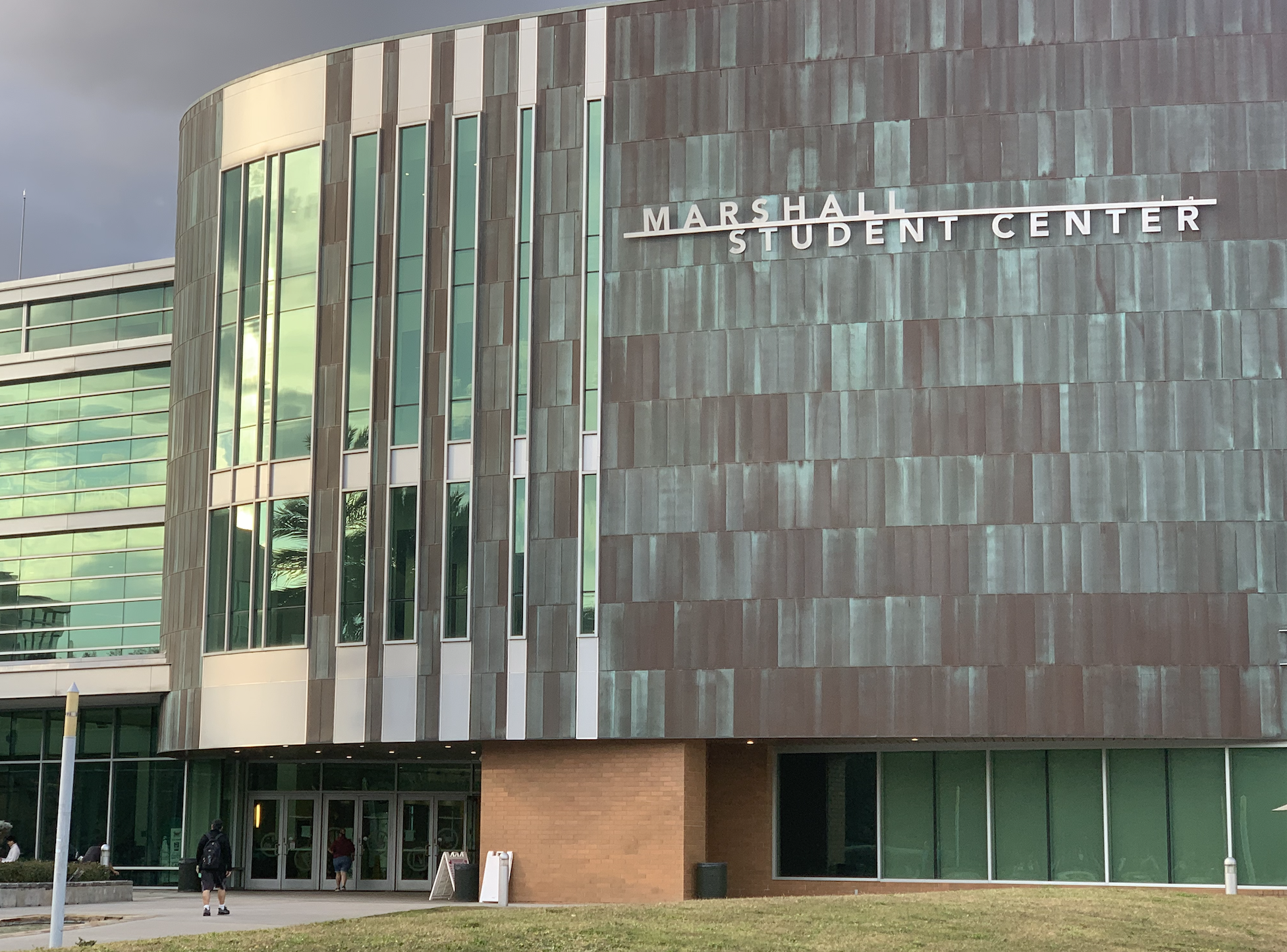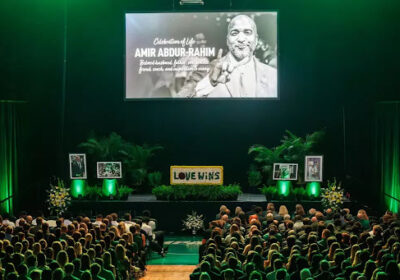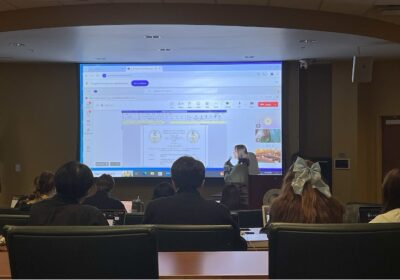Recording in USF’s MSC isn’t allowed. Here’s how you can get approval.

Students from various majors are starting to record their last video projects for their classes as finals week approaches.
It’s all fun and games until students are prohibited from recording in one of the most iconic USF buildings — the Marshall Student Center (MSC).
However, Althea Johnson, a USF spokesperson, said recording isn’t entirely prohibited in the MSC. Students just need to email Lisa Beebe, marketing manager for the community development and student engagement departments, with a filming request.
Johnson said the email request ensures filming won’t impede or interfere with building operations or events already scheduled.
“Examples include preventing students from using the amenities in the building or blocking building entrances or exits,” Johnson said.
Related: Marshall Student Center to replace elevators by December 2025
Although the no-filming rule might sound new to some students, Johnson said it has been in place for more than 10 years.
The MSC filming guidelines apply to university departments, students and registered student organizations interested in filming for class projects, social media clips or individual use, Johnson said.
If MSC staff encounter someone with a video camera or filming equipment and they do not have permission, they will urge them to request approval, Johnson said.
Filming requests should include information such as the purpose, date, time and number of people involved in making the video, Johnson said.
Johnson said it is advised that requestors provide at least a few days’ notice to complete the approval process, but responses can be provided within 24 hours. Requests can be restricted or denied, Johnson said.
Keeping you informed since 1966. Support our future
When asked whether the no-filming rule could be a First Amendment violation, Johnson said it is an operational procedure — not an official USF policy or regulation.
“There is no university-wide policy or regulation that prohibits anyone from filming in a public space,” Johnson said. “If recording would infringe on the rights of others or take place in areas where an individual may have an expectation of privacy, then recording may be prohibited.”
Johnson said only the first floor of MSC is considered a public space, but it is only open for lawful and non-disruptive expressive activities. No specific disruptive behavior was provided.
Certain areas of the MSC require additional filming approvals, such as shops and services in the retail hallway or dining areas, Johnson said. If the requested space is not available, staff can assist them in determining alternate locations within the building, she said.
Related: Here’s why some MSC restaurants haven’t extended hours
Footage or voice recordings of dining employees require additional approval, according to the MSC filming guidelines.
The MSC is not the only building on campus where people need permission prior to recording. The Recreation & Wellness Facility (REC) and the USF Library also require approval to film.
Johnson said the REC is not a public space but a restricted-access facility reserved for recreational use by authorized individuals only.
The Library can prohibit any recording that disrupts library operations, violates Library or university policies or endangers the health and safety of library customers and employees, according to the USF Libraries website.
It’s unclear how filming a class project in the Library, for example, would affect anyone’s safety.
Johnson said USF considers expectations of privacy and intended use of the facilities when determining what areas are not open to the general public for expressive activities.
“For those spaces that are open for expressive activities, USF is free to institute reasonable time, place and manner restrictions on those activities, which may include a review and approval process,” Johnson said.
So, if you are looking for places to film your final video project but are short on time to request a recording permit, you might want to take inspiration from the outdoors.






